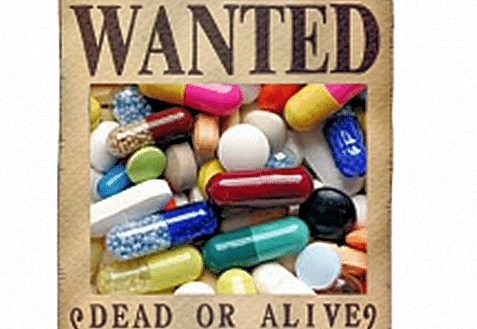L’Aifa è una realtà nella quale too many accounts do not add up and a government that was really interested in making it work properly, first of all for the protection of citizens, would already have it handed over for a while.
Written by M5S Camera News published on 22.09.14
Have you ever gone in pharmacy, submit your recipe, request a drug and hear you answer that not available? E poi uscire, andare in una seconda farmacia chiedere lo stesso farmaco (può essere un antidepressivo, un farmaco per la cura del Parkinson o per l’ipertensione o magari un farmaco salva vita, un antiepilettico, antiasmatico, o un farmaco antitumorale) e sentirvi rispondere “li ordiniamo ma non arrivano”? Lo sapete qual’è il motivo?
This is the so-called parallel export. That is to say, farmaci vengono acquistati all’ingrosso in Italia e poi venduti all’estero a prezzo maggiorato dal 20 al 60%. This practice is allowed by European legislation on the free movement of goods and by the fact that Italian pharmacies, according to a 2006 law, can act as wholesalers. Thus, for example,
In front of these obvious distortions we questioned the Minister Lorenzin per chiederle il perché di questo aumento spropositato del prezzo del Leukeran, alla luce del fatto che l’azienda produttrice non ha dovuto fare nessun esborso aggiuntivo rispetto all’immissione in commercio, che risale al 2000, e come intenda affrontare il grave problema della carenza periodica di farmaci.
L’Aifa è una realtà nella quale too many accounts do not add up and a government that was really interested in making it work properly, first of all for the protection of citizens, would already have it handed over for a while.
Instead, Nothing. But in return Lorenzin commissaria l’Istituto Superiore di Sanità, against which a procedure has been adopted that we do not hesitate to define forced And instrumental.
Noi sull’Aifa viogliamo vederci chiaro. Sono mesi che abbiamo cominciato a scavare e non ci fermeremo fino a quando la situazione non cambierà radicalmente.
Unobtainable drugs, the odyssey of patients
Mario De Fazio – 21 settembre 2014 – IL SECOLO XIX Savona
The phenomenon concerns all of Italy but in Savona it seems to have even more harmful effects. An anomaly that poses serious inconvenience to patients, who often find themselves forced to face ups and downs and travel in order to be able to buy delicate medicines, such as anti-depressants or those used to combat neurological diseases. This is confirmed not only by the president of the order of pharmacists of Savona, Giovanni Zorgno, but also by the Consumer Movement which has been collecting reports of exasperated citizens for months.
The (perverse) mechanism, in many cases, is simple: having expired the Italian patents of some "generators" - the drugs that were patented in the past and which are then "copied", in the active ingredient and in the composition by the generics - prices have collapsed, in some cases reaching half of the original cost. And so some of these pharmaceutical products produced by pharmaceutical companies on the basis of market demand - are placed on foreign markets, in countries where those same drugs have not yet expired patents. And where, ça va sans direcan be sold at higher prices. Thus wholesalers and some pharmacists (but only those authorized to resell) obtain more profits, however, causing a shortage of those same products in our local pharmacies.
There are numerous examples of "untraceable" drugs: they range from anti-depressants such as Cymbalta, Wellbutrin and Elontril to anti-epileptic drugs or in general used for neurological diseases, such as Lyrica. But even powerful anti-inflammatories like Pentasa or an anti-asthmatic like Assieme are more difficult to find than the classic needle in a haystack. And the reporting forms that every pharmacy is required to send in the event of a drug missing seem to be worthless. The case of the Zorgno pharmacy, in Piazza Diaz, owned by the president of the Order himself, is sensational. «From 22 August to today we have sent 74 reporting forms for absent drugs – spiega il dottor Zorgno -. Le segnalazioni arrivano a Federfarma che poi provvede a girarle a Comuni e Asl che attivano, nel caso, i controlli del Nas. I farmaci che prendono altre vie, dovrebbero essere sottoposti a controlli ma è difficile spesso individuare l’anello della catena su cui intervenire. Spero che non ci siano farmacie che “giocano” su questo versante: abbiamo già provveduto a segnalare attività illecite e ci sono casi di farmacie, a ponente, che sono sotto processo. Continueremo a vigilare ma il meccanismo è complicato perché diverse farmacie savonesi si servono anche da grossisti lombardi o piemontesi».
